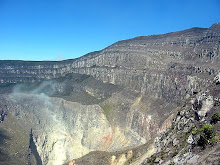Archeology, comes from the Greek, which means archaeo "kuna" and logos, "knowledge". Name alternative archaeological science is the history of cultural material. Archeology is the science of learning culture (men) the past through a systematic study of data on the material left behind. Systematic study include the findings, the documentation, analysis, and interpretation of data such as artefacts (cultural material, such as a stone ax and temple building) and ekofak (of the environment, such as rock, earth, form, and fossil). Engineering research is a typical process (ekskavasi) arkeologis, although the survey also get a large portion.
Goal various archaeological and became a long debate. Of them is called the paradigm of archaeological, historical culture that is set up, understand human behavior, and understand the process of cultural change. Because the aim to understand the human culture, the science of this to include in the science group Humanism. However, there are many that are used for science, among others, history, anthropology, geology (with knowledge about the earth, forming a layer of reference to be a relative age of the findings arkeologis), geography, architecture, paleoantropologi and bioantropologi, physics (with, among other carbon-c 14 to get the absolute pertanggalan), science, metallurgy (to get the elements of a metallic object), and philology (learn old script).
Archeology at the present merangkumi various related fields. For example, the discovery of the corpses buried will attract experts from various fields to examine the clothes and the type of material used, the form of ceramics and how the distribution, through the trust that is buried with the dead bodies, chemical specialists capable of determining the age, such as how to cut through the method of measurement carbon 14. Meanwhile, genetic specialists who want to move the ancient human migration, examining DNA.

In particular, the archaeological study cultural past, is old age, both in the prehistoric period (before known any posts), and the history (when there is evidence in writing). On development, archaeological culture can also learn of the present, as dipopulerkan in the study of modern material culture (modern material culture).
Because it depends on the survival of things past, the preservation of archaeological crave objects as data sources. Therefore, developed and discipline others, namely the management of archaeological resources (Archaeological Resources Management), or is more extensive cultural resource management (CRM, Culture Resources Management).
From: Wikipedia
Goal various archaeological and became a long debate. Of them is called the paradigm of archaeological, historical culture that is set up, understand human behavior, and understand the process of cultural change. Because the aim to understand the human culture, the science of this to include in the science group Humanism. However, there are many that are used for science, among others, history, anthropology, geology (with knowledge about the earth, forming a layer of reference to be a relative age of the findings arkeologis), geography, architecture, paleoantropologi and bioantropologi, physics (with, among other carbon-c 14 to get the absolute pertanggalan), science, metallurgy (to get the elements of a metallic object), and philology (learn old script).
Archeology at the present merangkumi various related fields. For example, the discovery of the corpses buried will attract experts from various fields to examine the clothes and the type of material used, the form of ceramics and how the distribution, through the trust that is buried with the dead bodies, chemical specialists capable of determining the age, such as how to cut through the method of measurement carbon 14. Meanwhile, genetic specialists who want to move the ancient human migration, examining DNA.

In particular, the archaeological study cultural past, is old age, both in the prehistoric period (before known any posts), and the history (when there is evidence in writing). On development, archaeological culture can also learn of the present, as dipopulerkan in the study of modern material culture (modern material culture).
Because it depends on the survival of things past, the preservation of archaeological crave objects as data sources. Therefore, developed and discipline others, namely the management of archaeological resources (Archaeological Resources Management), or is more extensive cultural resource management (CRM, Culture Resources Management).
From: Wikipedia

